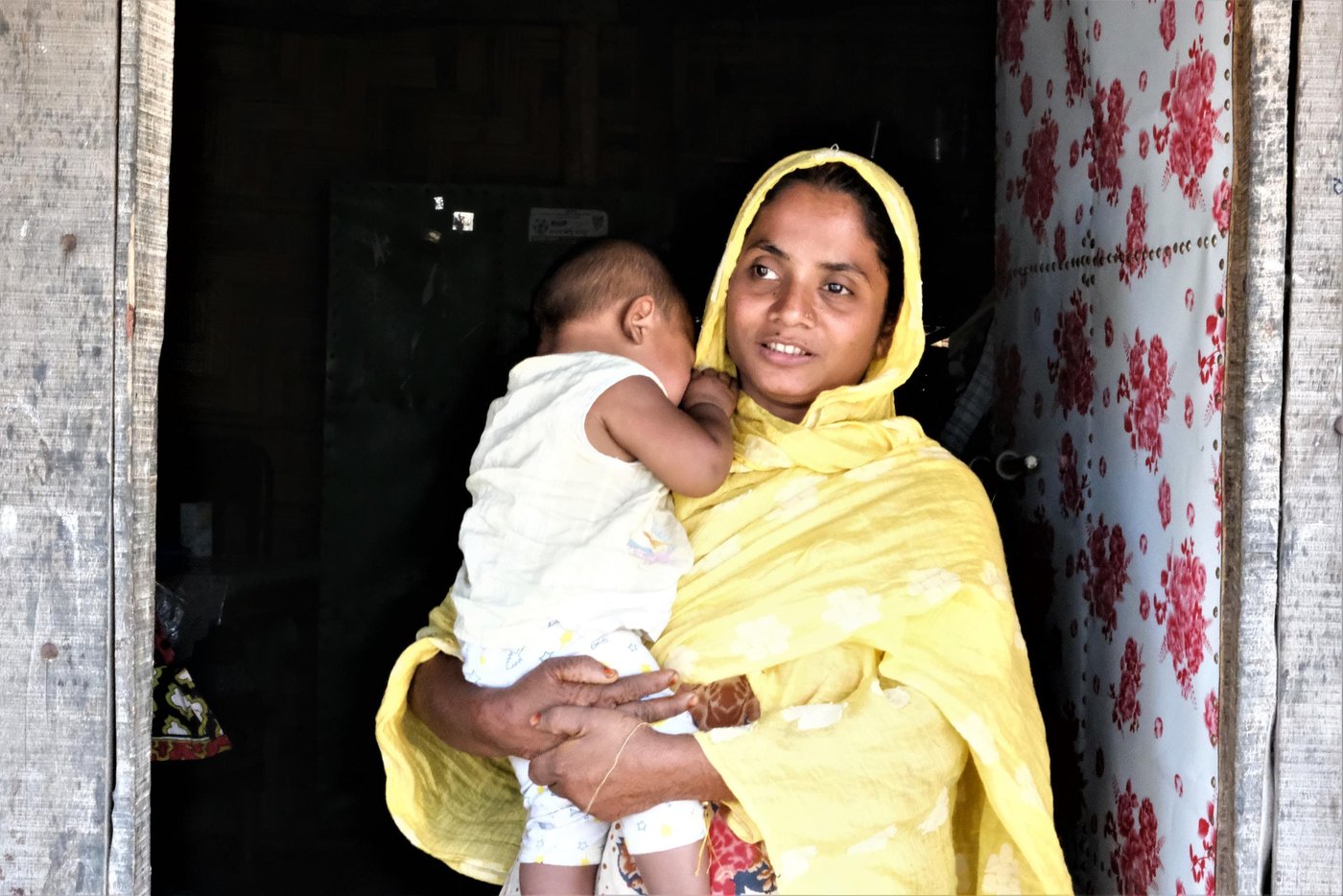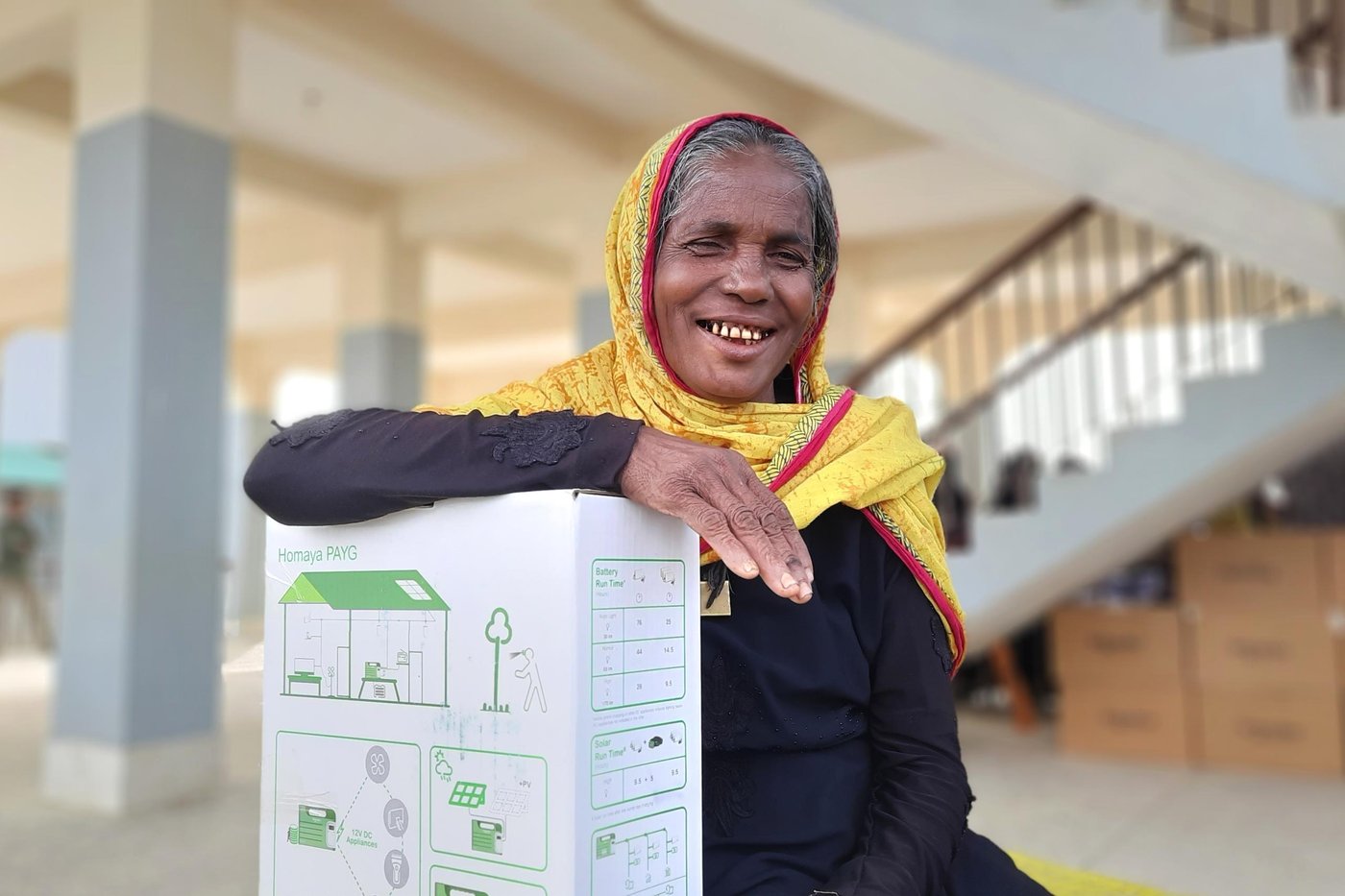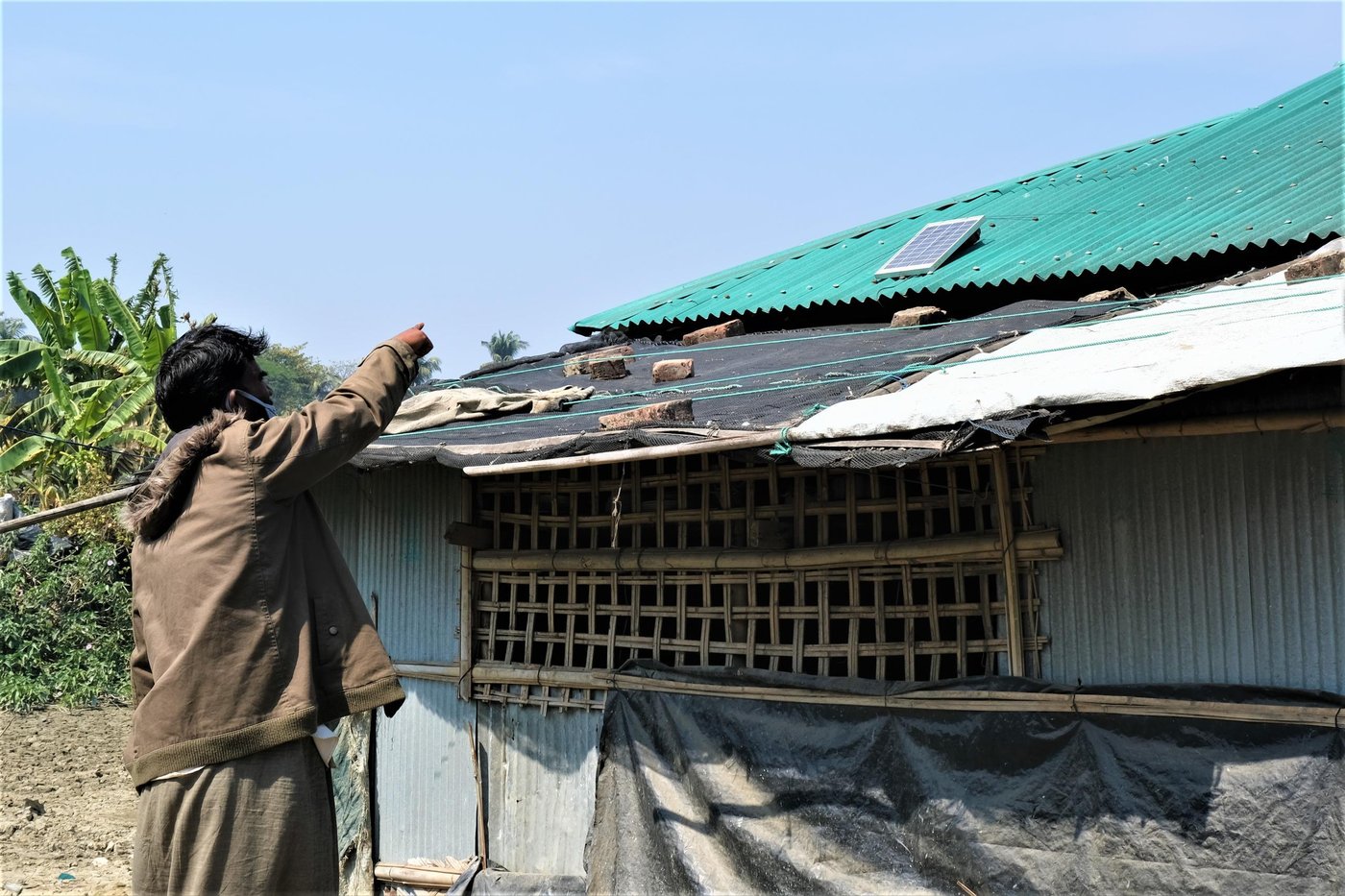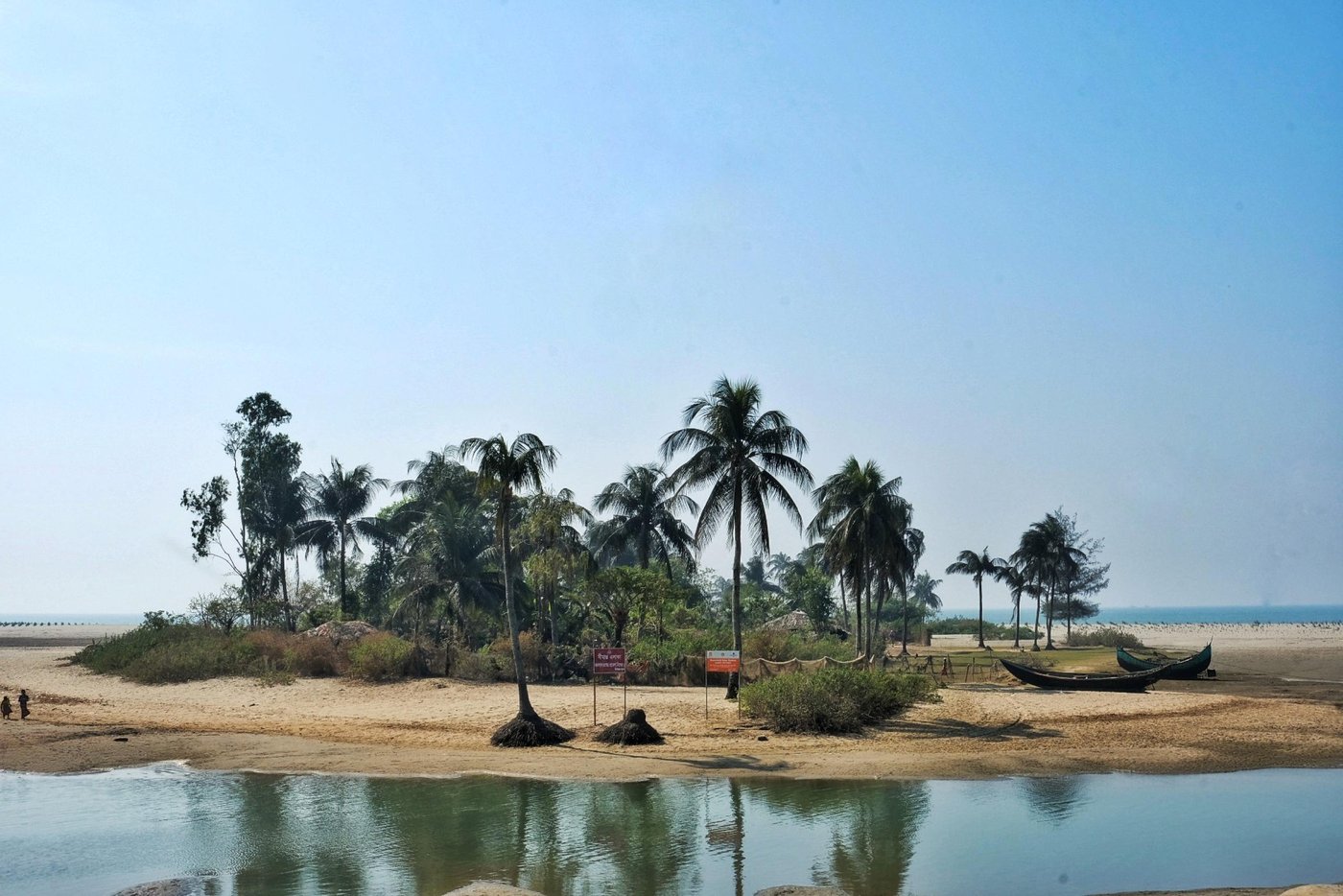In 2017, Shah Porir Dwip was one of the primary ports of entry for Rohingya refugees fleeing Myanmar. Rohima, 26, remembers welcoming groups of refugees in her small hut. “We shared the little food we had with them,” she says. “The men slept in our yard while we took the children and women inside.”

Life is hard for people like Rohima. Here, communities rely on the Bay of Bengal for food and jobs. Every morning, the men of Shah Porir Dwip go out to sea. While they had no electricity, they would do this in complete darkness – and staying in touch with loved ones was out of the question.
As Rohima recalls: “I had to walk to the other side of the island to charge my phone in a shop. Some days I felt too tired to walk, some days it would get too dark. Without my phone, it is impossible for me to know where my husband is – especially in bad weather.”

Electricity doesn’t just help people keep in touch with their loved ones. The nearest hospital is seven kilometres away, and during emergencies it is impossible to call for help without active cell phones.
“If someone goes into labour during the night, the kerosene lamps are no good for midwives to deliver babies safely,” Rohima shares. Although some parts of the island have electricity connections, most households cannot afford it.
Accidents caused by inadequate lighting are a common occurrence in homes. Isamon Bibi, 59, broke her hip in the latrine, while her neighbour Khoteja, 62, showed us a deep cut in her right wrist that she sustained when she fell on her doorstep one night.

The darkness also weighs heavy on the mind. “My granddaughter is growing up, and at night I feel scared for her when she goes to the toilet outside. There is no sound – it’s just darkness,” says Isamon.

The joy of light
But things are slowly changing. A solar energy project, supported generously by the Norwegian Ministry of Foreign Affairs (NMFA), is bringing electricity to the homes on Shah Porir Dwip for the first time.
On the day the solar lights were distributed, Isamon Bibi stood in line smiling. Children milled about, laughing, shouting, and posing for photos.
Piuli, a girl of around 13, had come to the distribution centre with her mother and brother. At the sight of the solar boxes, her face broke out into a wide bright smile. Grabbing the box from her mother, Piuli held it close to her chest, turned around and ran back towards her home. Laughing, Piuli’s mother turned to the NRC staff at the distribution: “She is excited. My daughter can now do her school homework in the evening and prepare for class!”

Like Piuli, almost every adult in the line was accompanied by children who ran into the adjacent field with happy faces holding their solar panel boxes – or as Isamon Bibi calls them, “magic boxes”.

Two months after the distribution, we visited Shah Porir Dwip again to see how the residents were getting along with their new lamps. Rohima told us that solar power had made cooking and childcare easier.
“It saves me 500 taka [around USD 6] per month on kerosene oil for lamps, and my older children can take care of my youngest more easily since the rooms aren’t dark anymore,” she says.
Many other parents shared Rohima’s relief. The money saved can now be spent on other much-needed items. For the inhabitants of Shah Porir Dwip, 500 taka means food for 15 days, or school fees for three months for their children.

The fishermen, too, are excited.
“Leaving my family alone always troubled me. My wife is young, and we do not have any neighbours to help her. Night-time is scary,” says Habibullah, one of the local fishermen. “However, now that we have power in the house, I am less concerned. I can call my wife throughout the day.”

But the people of Shah Porir Dwip need a lot more help. Hygiene and sanitation facilities, fresh water points, and access to quality education remain a challenge. Amplifying all this is the rapidly changing climate – with river erosion, sweeping floods and scorching summers becoming more and more common.
In 2022, NRC’s operations in Bangladesh will commit to helping communities across Bangladesh’s south coast – including in Shah Porir Dwip – through “smart solutions” that help communities become more resilient to the effects of climate change.


